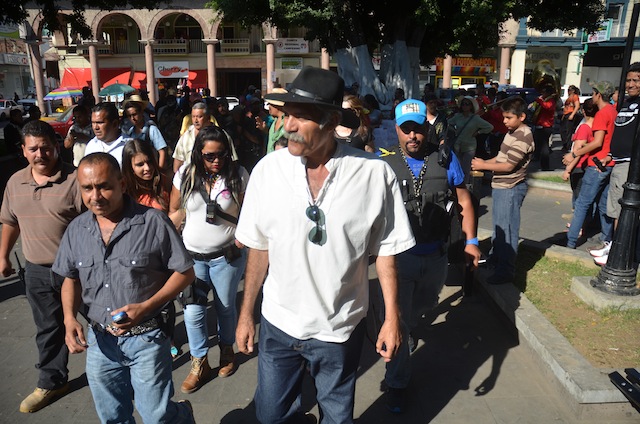
By Michael Montgomery and Ana Arana
Last year, civilian militias in the western Mexican state of Michoacan rose up to challenge one of the country’s most ruthless drug cartels, the Knights Templar. Since then, the militias have driven the cartel from more than 30 municipalities and forced the resignation of local officials suspected of working for the drug lords.
These efforts to protect citizens from escalating drug violence resonate deeply with Michoacan migrants living in California. Relying on loose cross-border family networks, organizers have quietly raised money from California for vehicles, weapons and other supplies. That support has helped the militias set up checkpoint and command posts, and operations to hunt down cartel leaders.
Movement leader Jose Mireles lived with his wife and kids for almost 10 years in Fresno working for the Red Cross — and used those connections when faced with a dangerous situation after moving back to Michoacan. A few years after the family returned, drug gangs began a campaign of murder and rape, but the police, who were often working for the drug lords, couldn't provide protection. Mireles reached out locally, but also to his friends back in California for help and support.